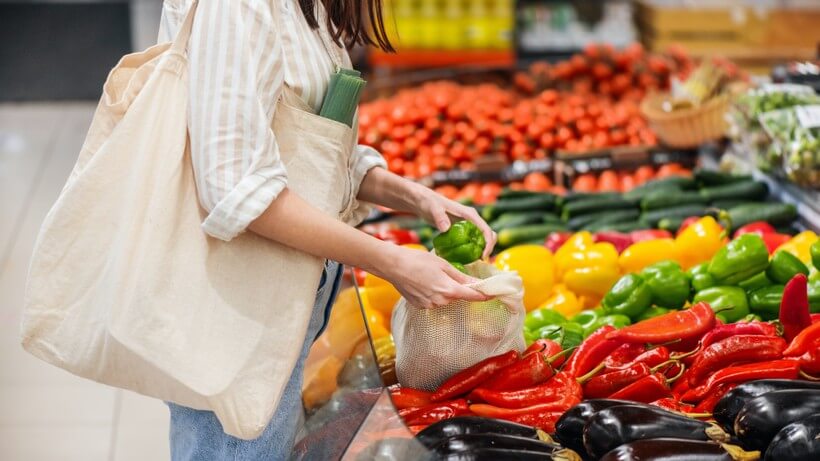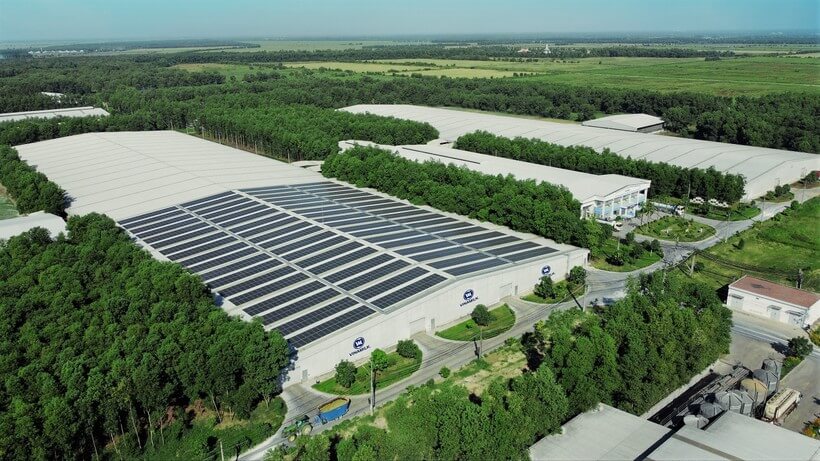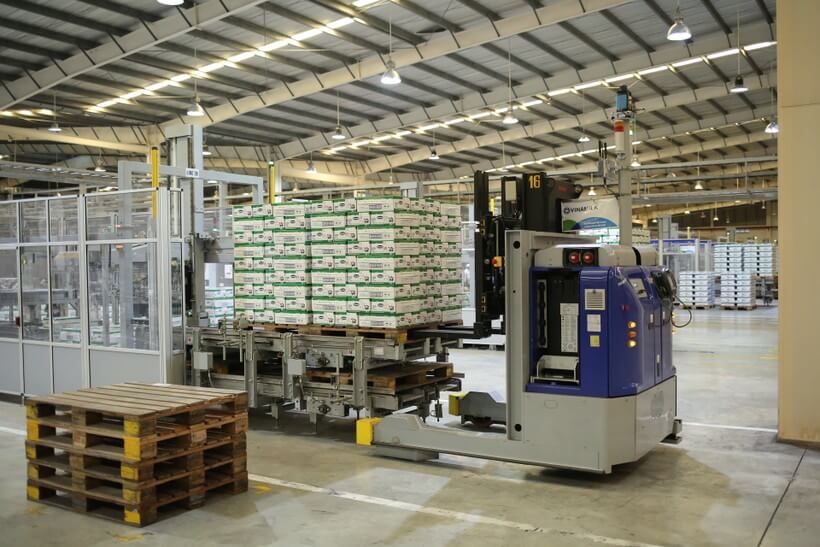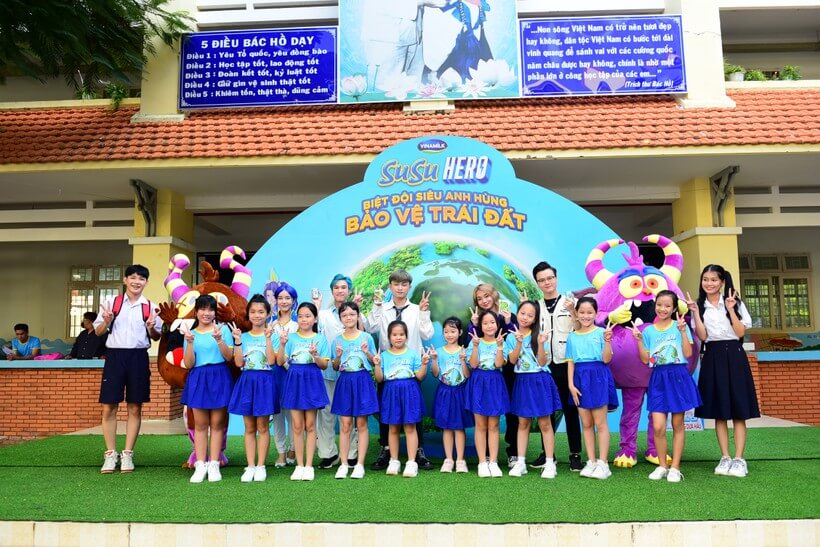FnB businesses increase their environmental activities, the FnB industry also ranks 3rd in overall global sustainability score.

FnB industry in the global challenge called "climate change"
Food and beverage (FnB) is one of the largest industries and has a close relationship with the lives of billions of people around the world. The Business Research Company's FnB research report released in January 2023 said that the FnB market is expected to recover after the "black swan" event - Covid-19 and the scale is expected to increase to 9,225.37 billion USD by 2027 with an average growth rate of 6.3%.
In terms of sustainable development, FnB is also currently one of the leading industries. According to research by ESG consultants EcoVadis on 46,000 companies, the FnB industry has a score of 48.9 - in the Top 3 industries with the highest scores for Environmental issues and overall sustainability score, along with the Construction and Finance, Legal and Consulting industries.
Besides, the F&B industry is susceptible to the impacts of climate change. Climate change in the form of natural disasters like storms, floods and fires... is a risk for FnB companies, disrupting supply chains and reducing raw material supplies. This motivates the FnB community to direct production and business activities according to sustainable strategies.
Around the world, many FnB companies are directing research and development (R&D) activities into green technology, more sustainable processes and products, 55% FnB business leaders said they have increased investment in the environment. .
BrewDog beer company invested 12 million pounds in a production system to convert waste from the beer production process into bioenergy, thereby providing energy for the factory, transportation vehicles... as well as reducing consumption. absorb water. According to BrewDog's sustainable development report, from 2016 to 2021, this beer industry enterprise reduces up to 43% of electricity use per HL, reducing 55% of water/HL (HL: hectoliter, equivalent to 100 liters). Or candy company Ferrara aims to have all packaging be reusable, recyclable or 100% compostable by 2025.
More and more brands are reusing food and byproducts from the production process. For example, Wheyward Spirit uses whey from cheesemaking to craft wine; and ReGrained uses grains left behind by breweries to create ingredients for snack bars and chips. This trend has also spread to restaurant chains and small businesses such as limiting the use of plastic spoons and forks, replacing plastic containers with environmentally friendly materials...
Steps of Vietnamese businesses
In Vietnam, FnB is one of the industries with an important role and great development potential. Experiencing a period of upheaval due to the pandemic along with the consumer trend of promoting green and sustainable products, FnB businesses in Vietnam are also continuously transforming towards sustainability across the entire value chain. manufacture.

Sustainable development trends in the industry are also continuously updated and developed every day, typically the use of vegan and organic raw materials, sustainable farming methods, reuse and recycling of waste. or excess products from the production process to measures to limit the use of plastic and reduce packaging in general, cut down on food waste,...
For example, Vinamilk - the FNB industry brand with the highest value in 2022 (according to Forbes) - continuously invests in green and sustainable technologies and solutions in its farm system and manufacturing plants, showing its commitment and effort with a sustainable orientation at a strategic and long-term level.
Currently, 13 farms and 10 factories of Vinamilk have installed solar energy, while promoting green energy such as Biomass, CNG (at the factory), Biogas (at the farm). At the factory, 87% energy from fossil fuels has been replaced by clean, green energy from Biomass, CNG; 15%-20% The electricity used is exploited from solar energy. Vinamilk also built the Green Farm, Organic Organic dairy farm model, practicing dairy farming according to sustainable agriculture orientation.

Vinamilk implemented and completed planting 1 million trees for Vietnam to reach Net Zero, a 5-year period from 2023 to 2027. Recently, the factory and dairy farm in Nghe An were certified to be carbon neutral according to PAS2060:2014 standard. All Vinamilk stores nationwide are using bags made from recycled plastic, plastic spoons, plastic straws and shrink wrap, which this business is cutting down on a schedule.
It can be said that Vinamilk's story is typical of an FnB business in the wave of green transformation, clearly illustrating the inevitable transformation of this important field in Vietnam and around the world.

Net Zero – Difficult problem, but impossible not to solve
Deloitte warns that climate change is affecting food supplies by reducing crop yields, saying each degree Celsius increase in average global temperatures could reduce wheat yields by up to 6%, rice by 3.2%, corn up to 7.4%, and soybeans up to 3.1%.
It is also important to acknowledge that, besides the solutions that businesses can proactively implement, many issues of controlling greenhouse gas emissions are beyond the control of FnB businesses. It is estimated that about 80% of emissions fall under Scope 3 (Scope 3: consumption, transportation, investment...), for example when consumers throw away food before consumption or improperly dispose of packaging. .
Therefore, in parallel with reducing greenhouse gases internally, businesses also actively implement many programs to create impact on the community, forming awareness and green lifestyle to the community such as classifying , recycle trash or plant trees.

In this process, consumers' preference for green, sustainable products; Investor's decision to choose ESG stocks - businesses to invest capital; or the state or government developing policies and legal corridors to create conditions to promote sustainable development - will all be driving forces to promote the transformation process of businesses pursuing sustainable development goals such as Net Zero.
(Source: Education & Times Newspaper)
Original link: https://giaoducthoidai.vn/doanh-nghiep-fb-trong-buc-tranh-chung-ve-net-zero-post650583.html


